Asparagus is generally considered to be a very healthy vegetable. The vegetable gets its name from the amino acid asparagine which is found in abundance in it. Can rabbits eat asparagus? Yes, you can feed your rabbit asparagus along with many other vegetables.
With nearly 93% of its content being water, asparagus has very few calories and low sodium content. It is also a good source of several essential vitamins, including Vitamin C, Vitamin B6, Vitamin K and Vitamin E for your pet rabbit. Asparagus also provides zinc, calcium, iron, potassium, magnesium, folic acid, thiamin, riboflavin, beta-carotene, manganese, potassium, chromium, and copper. For a vegetable that contain mostly water, asparagus has even more value as it contains fiber and some protein too.
Asparagus and your pet rabbit
Before the advent of modern medicine, people used asparagus for its curative properties. The high fiber and water content makes it an effective laxative. It also helps the excretory and urinary systems to function at their best. Adding asparagus to your pet rabbit’s diet will also help the uric acid to dissolve well and balance the sodium content found in the blood so that conditions like hypertension can be avoided.
If you’ve never fed asparagus to your pet rabbit, you must take some precautions while introducing it. You should introduce asparagus to your bunny only if your pet is an adult already. A baby rabbit might have difficulty while biting its stalk. Additionally, asparagus is a bit hard to digest and the baby rabbit’s digestive system is rather immature.
When you offer your pet rabbit asparagus the first time, you should give just a little bit and then wait to see how your pet reacts to it. If the stool turns soft in twenty for hours, it means that your rabbit is not ready for asparagus yet. Take it out of the meals and offer other foods until the stools become normal again. It would be advisable to wait for at least a week before you offer asparagus to your pet rabbit again. You should follow the same rule for all other new foods that you may add to your rabbit’s diet.
Rabbits need fresh water in abundant quantity at all times. In addition to water, rabbits should have fresh hay in large quantities available to it at all times. You may find it surprising to know that rabbits eat their food twice in order to extract proteins, minerals and vitamins in as much quantity as possible. Their excretions are small droppings shaped like kidneys covered in some mucous. When rabbits process their excretions again, it is quite useful for them and asparagus helps in inducing excretions.
What does your pet rabbit need?
You have to ensure that your rabbit gets sufficient amounts of fiber. This can be done by giving it good quality rabbit pellets which have rich fiber content. You may see several types of pellets at the pet store; however, always looks for those with a minimum fiber content of 18%. Additionally, you should read the list of ingredients very carefully. The best pellets are those made from natural ingredients such as timothy oats. You can also select the ones made with oats and alfalfa.
Pellets come in large and small packaging. Instead of buying the ones that come in large packets, choose the ones in small packs as this ensures that your rabbit gets fresh pellets all the time.
Rabbits get most of their nutrition naturally from hay. Not only is it essential for their health, it also keeps them occupied and entertained. Rabbits spend most of their time in playing with hay or in chewing it. All kinds of hay are not of the same quality even if the same techniques are used for cutting and processing it. Among the various kinds commonly known are Timothy, Bromes and hat made with legumes. The most popular choice in hay for breeders is Timothy hay and this is the kind you should use for your pet rabbit.
As a baby rabbits grows older and matures, you should add more and more vegetables to its meals. If your rabbit consumes an appropriate quantity of hay and vegetables, you may even take pellets out of the diet plan nearly completely. The general rule is that for a usual rabbit which weighs 2.5 kg, you should feed it approximately one and a half to two and a half cups fresh vegetables daily. Adult rabbits require foods with low energy levels to prevent an onset of diabetes. Therefore, shifting from pellets to fresh vegetables and hay is essential. The diet should also have decreased amounts of proteins for maintaining the natural balance of bacterial culture in the rabbit’s digestive tract.
Conclusion
Coming back to the initial question, yes rabbits can eat asparagus. Taking care of pet rabbits may seem to involve around feeding them as they eat continuously all throughout the day; however, the joy that your pet rabbits will add to your life will make these chores something you enjoy doing.
References:

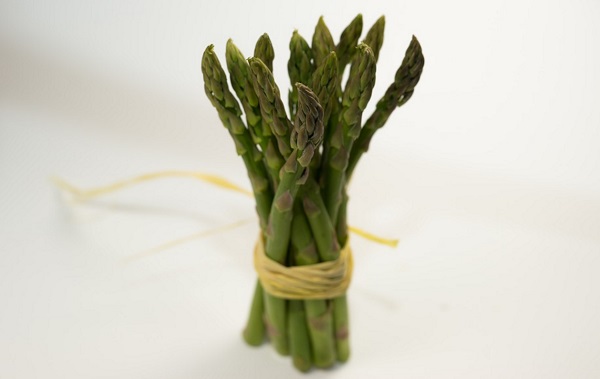
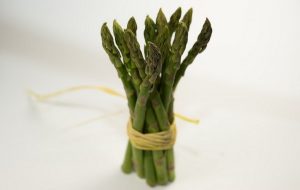
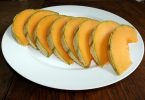
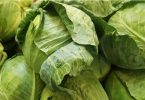

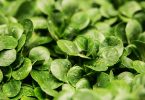
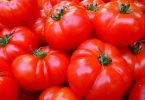

Leave a Comment